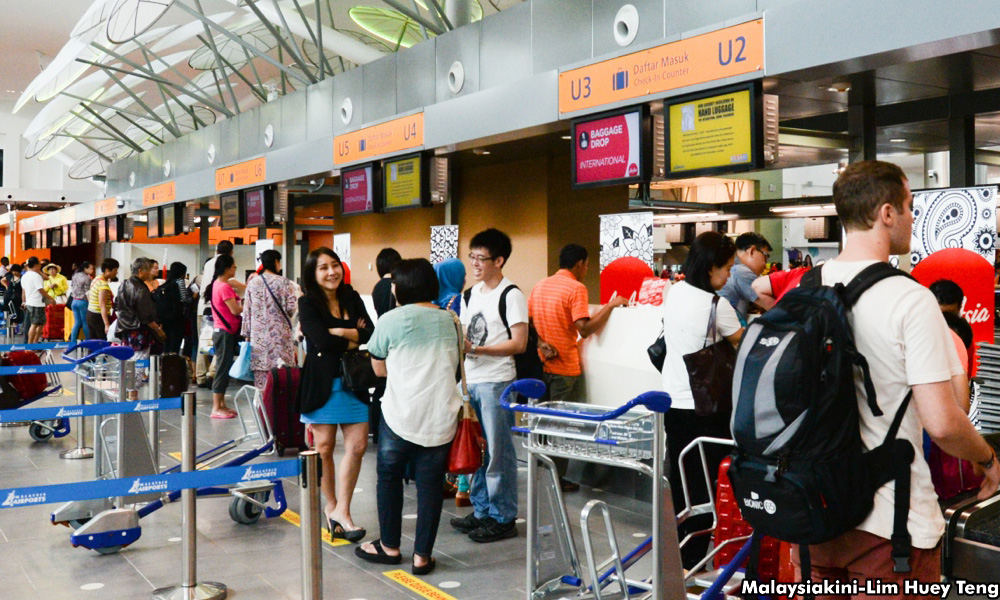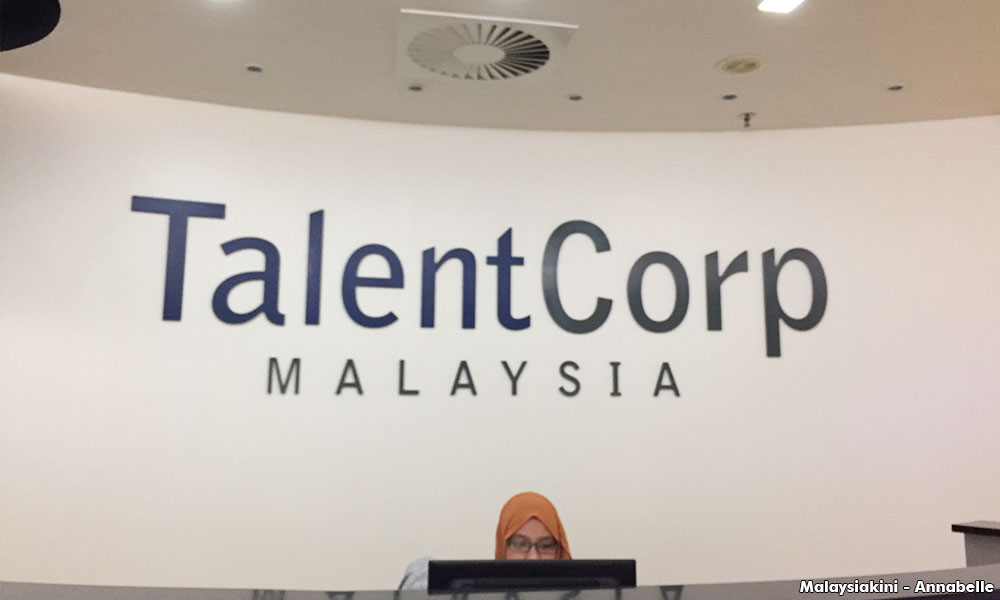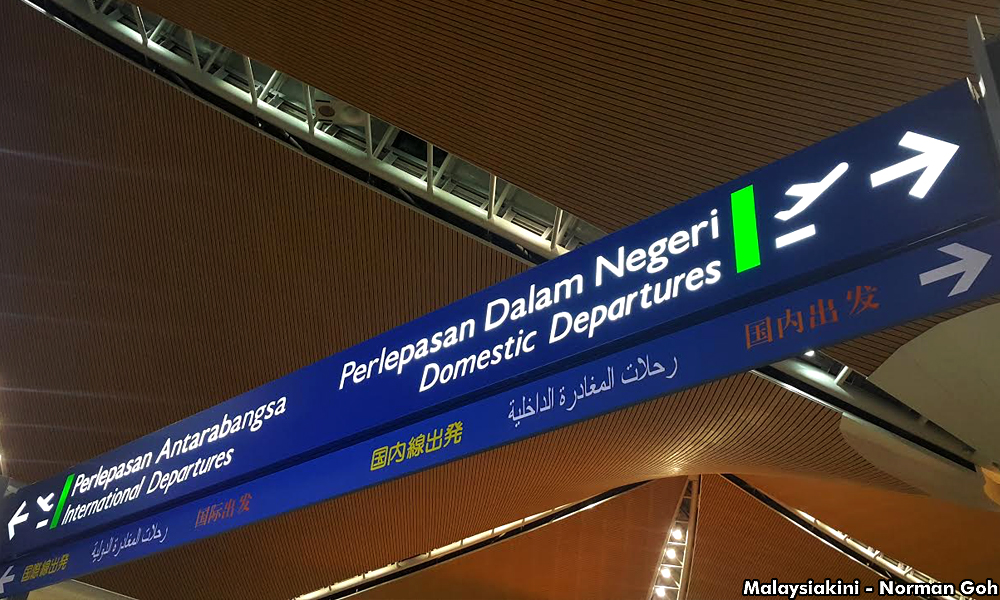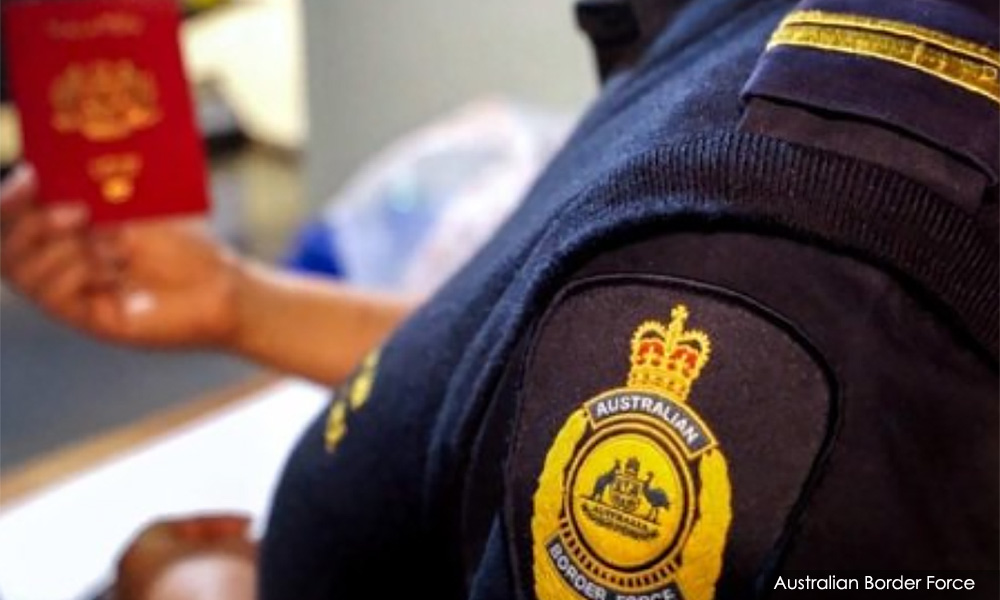
Malaysians striking out for the ‘West’ commonly cite these reasons for leaving: lack of career prospects, declining standards of education, prolonged bumiputera privileges and rising Islamic extremism.
The argument goes that as long as the racist politics and institutionalised discrimination continue, as Suaram adviser Kua Kia Soong explained, Malaysians will continue to leave, despite Talent Corp’s initiatives to retain our domestic talent.
Talent Corp publishes an annual list of critical occupations and sought-after skills aimed at the diaspora. It has approved more than 5,000 Returning Expert applicants since the Najib administration started the corporation in 2011.
A majority of the experts returned to work in the oil, gas and energy sectors, financial services, communication and infrastructure and healthcare.
However, Malaysians who have taken up citizenship in the receiving countries do not qualify for the Returning Expert Programme.

It is hard to gauge precisely from available reports how effective Talent Corp and the public sectors have been in leveraging the skills and knowledge of the diaspora and those who have returned.
Meanwhile, the likelihood of skilled labour emigrating will continue to trend upwards, in spite of the change of government, which is seemingly morphing into an old Umno, stoking the bumiputera agenda.
The Department of Statistics reported that out of a population of 32.4 million, there were 15.6 million in the labour force in April 2019.
About 29 percent of this labour force is tertiary qualified, presumably graduates with managerial, professional or technical skill sets. They are potentially the bulk who could likely leave when the opportunity comes along,
Malaysians working overseas, according to Wikipedia, total about 1.5 million, mainly in Singapore (38.5 percent), Australia (13.8 percent), Brunei (7 percent), UK (6.3 percent), US (2.6 percent), China (1.5 percent), and New Zealand (1.4 percent).
For a context of where we stand, let’s look at the brain drain index, which gauges the economic impact of human displacement on a country’s development. The higher the index, the greater the ‘brain drain’. Malaysia’s index was 5.3, compared to Singapore (3.0), New Zealand (2.4) and Australia (1.3).

Malaysians continue to head towards Australia. According to the Australian Department of Home Affairs, a total of 164,590 Malaysia-born were living in Australia at the end of June 2017, about 48 percent more than in 2007.
Malaysians are the ninth largest migrant community in Australia, about 2.3 percent of Australia's overseas born population. I am one of the 2.3 percent.
I left Malaysia in 1986 because there was a demand for journalists in Perth. Like many who have lived overseas, I know well the benefits of working across different organisations, engaging with diverse media sources and traversing the cultural, political and geographical space.
I maintain links with friends in Malaysia. I still feel a sense of cultural affinity. I root for the home team at each Thomas Cup and Commonwealth Games. I come home each year for the food, family ties and the occasional media-related work.
Malaysia and Australia, I still call both my home.

Other emigrants may or may not share this sentiment. A friend, Dr Sundram Sivamalai, who left Malaysia for Singapore in 1970, then to Scotland, before moving to Australia in 1982, says he is in a “holding position”.
He has no qualms of returning “if the system comes near to the Australian system” – meaning fair competition for opportunities based on merits.
The experience of unfair treatment and non-inclusiveness is shared by Malaysian emigrants, driven out by the country’s racialised politics and inevitably drawn to more promising career opportunities elsewhere.
Sivamalai, a community representative on the Victorian Multicultural Commission, is doubtful whether wealth disparity and racial discrimination in Malaysia can ever be resolved, as long as the structural problems persist despite the recent change of government.
“Whichever party is in government makes no significant difference to the people on the top end, the rich,” he said. “The poor and the marginalised are the ones who are most affected by any change of government, be it good or bad.”
Which brings me to my point. It may not be as critical for the Malaysian diaspora to return to the tanah air. Digital technology is shrinking distances, collapsing borders, and globalising collaboration in commerce, education, research and innovations.
The global demand for skilled professionals will naturally accelerate with easier, affordable travel and internationalisation of the labour market. Professionals from Australia are even moving to Asia – mainly Singapore and Hong Kong – even as those with high skills in niche occupations are coming to Australia through the Global Talent Scheme.
‘Brain drain’ is perhaps passé? ‘Brain gain’ and ‘brain exchange’ are the current buzzwords as countries move into tapping the ‘brain banks’ of their diasporic communities.
The Migration Policy Institute (Washington DC) lists many diasporic brain-tappinginitiatives taken by developing countries.
For example, the Indian government established a Ministry for Overseas Indian Affairs (MOIA) in 2004 to issue Indians living overseas with special status like the Non-Resident Indians, People of Indian Origin and Overseas Citizenship of India.
China woos its students to return home, the majority from the US, with attractive fiscal and housing packages. Deng Xiaoping, who opened China to the global market in 1978 and sent thousands of Chinese to study in the West, once said, “When our thousands of Chinese students abroad return home, you will see how China will transform itself.”
European countries are enticing their diaspora to retrace their cultural roots through "birthright"tours.
Which takes us back to revisiting the work of Talent Corp and reviewing the election promises of Pakatan Harapan. How can they, in all practical terms, give highly skilled Malaysians a reason to stay because it is their ‘birthright’, and for those who have left, to return to their cultural roots?
ERIC LOO is a senior fellow (journalism) at the School of the Arts, English & Media, Faculty of Law, Humanities & Arts, University of Wollongong. He is also the founding editor of Asia Pacific Media Educator. - Mkini



No comments:
Post a Comment
Note: Only a member of this blog may post a comment.